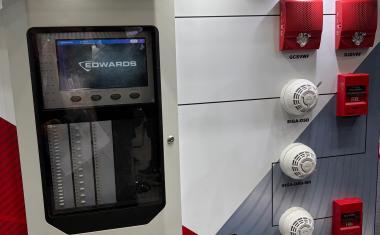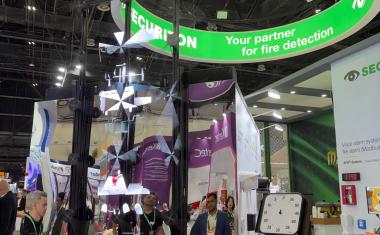BSIA welcomes revision of British Standard BS7958
The British Security Industry Association (BSIA) has welcomed the revision of British Standard BS7958 Closed Circuit Television (CCTV) Management and operation Code of Practice, ...
The British Security Industry Association (BSIA) has welcomed the revision of British Standard BS7958 Closed Circuit Television (CCTV) – Management and operation – Code of Practice, which has been revised to take into account the latest legislation. BS7958:2015 provides recommendations for the management and operation of CCTV within controlled environments where data – which might later be offered as evidence – is received, stored, reviewed or analysed.
The BSIA has been a key influencer on the review committee from inception through to completion and the updated standard joins a large portfolio of British Standards that the Association has contributed to. The standard, which will be extremely useful to anybody who is responsible for the operation and management of a CCTV system, has been expanded to include some of the newer technologies in the CCTV arena such as Automatic Number Plate Recognition and body-worn cameras.
Explaining the standard in more detail, David Wilkinson, Director of Technical Services at the BSIA, comments: “BS7958 covers CCTV systems which are used in areas where the public has a ‘right to visit’ such as places where public services are offered, public footpaths, educational establishments and public arenas such as sports stadiums.
“The standard helps to ensure that owners can obtain reliable information that can be used as evidence to secure a conviction,” adds Wilkinson.
Evidence gathered using CCTV cameras is one of the most successful ways of securing convictions in court; criminals are much more likely to plead guilty when faced by the undeniable evidence of being caught on camera. According to Hugh Marriage, former Home Office Crime Reduction Officer for the South-East of England, “A court hearing with a guilty verdict saves around £3,000 to £5,000 and CCTV pictures mean there has been an enormous increase in guilty verdicts.”
A key change from the previous edition of BS7958 has been the acknowledgement of the 12 principles of the Surveillance Camera Code of Practice issued by the Surveillance Camera Commissioner as required by the Protection of Freedoms Act 2012, and wholly supported by the BSIA’s CCTV section.
Simon Adcock, Managing Director of ATEC Security Ltd and Chairman of the BSIA’s CCTV section commented: “Camera technology develops at a rapid pace these days and the results that can be obtained from professionally designed and implemented systems increase the value of CCTV in fighting crime and protecting people and property. It has been proven that CCTV makes the public feel safer and that public support for CCTV is strong.
“Ensuring this continued support is critical for our industry and our law enforcement. To their credit the Government acknowledged this challenge and created the role of Surveillance Camera Commissioner in the Protection of Freedoms Act 2012, which gave rise to the Code of Practice and its 12 principles. The code seeks to ensure that camera systems are only installed where they are necessary, that privacy is considered, standards are compiled with and that the resulting information is kept secure and handled appropriately. We are therefore pleased to see that BS7958 supports the principles of the code and to have played an important role in its development.”














